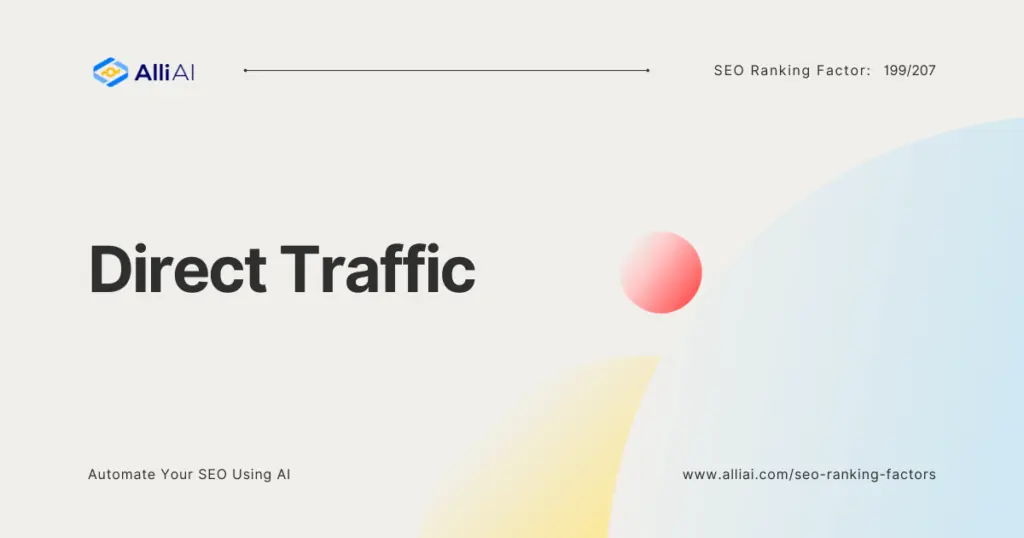What is Direct Traffic?
Direct traffic refers to website visitors who arrive at your site directly, without being referred by another website. This typically occurs when a user types a URL into their browser’s address bar, uses a bookmark to access your site, or clicks a link in an untracked email or offline document. Imagine if you had a physical store, and instead of finding it through an advertisement, a customer walks in because they already know about your store or have visited before. That’s the real-life analogy to direct traffic in the digital world.
Why is Direct Traffic Important in SEO?
Direct traffic is a crucial metric in Search Engine Optimization (SEO) because it can indicate brand strength and customer loyalty. High levels of direct traffic suggest that your brand is well-known enough that people remember your website’s address, or they have bookmarked your site due to frequent visits. This implies a level of brand recognition and trust that search engines take as a positive signal, as it reflects user satisfaction and relevance — two factors search engines value highly.
How Direct Traffic Affects SEO
1. User Engagement and Behavior: Direct visitors often have a specific purpose, leading to longer sessions, lower bounce rates, and higher engagement metrics. Search algorithms look favorably on sites with good engagement metrics, as it suggests the content is relevant and valuable.
2. Brand Signals: A high level of direct traffic sends search engines strong brand signals. It indicates that your brand is recognized, remembered, and sought after. These signals can indirectly boost your SEO as they suggest your site is a credible and authoritative source on its topics.
3. Trust and Authority: Regular direct visitors are likely to trust your content, which can lead to higher conversions and interactions. This user trust can translate into better performance metrics that search engines can use as ranking signals.
Relevant Stats and External Sources:
– According to a study by SEMrush, direct traffic is one of the top-ranking factors for Google, highlighting its importance in a comprehensive SEO strategy ([SEMrush, 2019](https://www.semrush.com/)).
– Research by BrightEdge showed that organic and direct channels account for over 70% of the total traffic, underscoring the importance of building a recognizable and trusted brand ([BrightEdge Research](https://www.brightedge.com/)).
FAQ
How can I increase my site’s direct traffic?
To increase direct traffic, focus on building your brand through consistent high-quality content, memorable marketing campaigns, and engaging with your audience across various channels. Ensuring excellent user experience and customer service will also encourage repeat visits.
Is all direct traffic genuine?
Although most direct traffic is legitimate, there can be instances where it is misattribated, such as when tracking codes fail or traffic comes from dark social (untraceable sharing). Tools and analytics adjustments are necessary to minimize these inaccuracies.
How does Google view direct traffic?
Google sees direct traffic as a positive indicator of a site’s health and relevance. While not a direct ranking factor, the behaviors associated with direct traffic, like low bounce rates and high engagement, positively influence Google’s perception of your website’s quality.
Conclusion
Direct traffic is not just a number in your analytics. It’s a reflection of your brand’s strength, recognition, and the trust your audience places in your content. In the realm of SEO, overlooking the significance of direct traffic can mean missing out on leveraging a powerful indicator of your site’s credibility and authority. By focusing on strategies that increase direct visits, you’re not only improving your SEO position but also building a loyal audience base that values what you offer. Remember, in a digital world crowded with competitors vying for attention, having a direct line to your audience is an invaluable asset.






